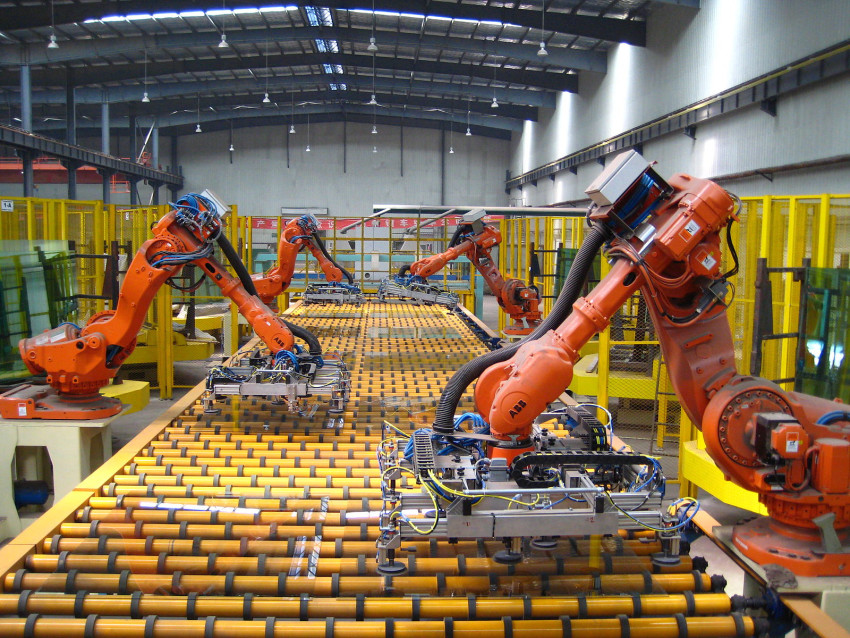
'Tax on robots not particularly profitable'
A tax on the purchase of robots will not result in significant welfare gains for a country. That is the conclusion of research by the Swiss doctoral student Uwe Thümmel, who has defended his dissertation at Erasmus University in Rotterdam on Thursday. 'Fair wage tax is much more effective.'
The idea of a robot tax is becoming more popular, now that robots are playing an increasingly prominent role in the production sector in particular. After all, if machines can replace people, that reduces the cost of employment for companies and the government misses out on wage tax. A seemingly obvious solution is to charge that tax on robots. Microsoft founder Bill Gates is among the advocates.
20 DOLLARS PER PERSON
Thümmel researched the extent to which such a tax would affect the prosperity of a country. He applied economic models to calculate the effect of taxes, and made a number of assumptions thereby: robots increase productivity but at the same time cause a loss of jobs. A robot tax could absorb that effect. 'Robots will increase income inequality, due to them mainly replacing low-income employees. Those people in non-robotised jobs (often highly educated) will earn more versus the other group. If such inequality is deemed unacceptable, imposing a tax could be the solution. However, the model shows that a robot tax only has very modest consequences, as purchasing power increases by a mere 20 dollars per person per annum.' That is the profit on a 3.5–4% tax on the purchase of a robot.
Such meagre results are due to productivity growing less healthily if there are fewer robots. 'In the end, that will result in fewer wage increases or dismissals. And so prosperity will decline, although people will initially keep their jobs if a company decides not to utilise robots.'

CLOSED ECONOMY
Thümmel's model looks at the United States' economy, where there is already a great degree of inequality. 'I assumed a future scenario in which income tax is already optimum. That is currently not at all the case. In that ideal situation however, taxing robots has proven to be pretty ineffective.' Moreover, the US has a closed economy in this scenario, as the model does not allow the contracting out of production abroad (where no tax is payable, for example). In reality, companies regularly relocate production facilities abroad, due for instance to the lower costs of labour. The calculated welfare gains are therefore probably overestimated.
This research concerned industrial robots, and did not pay any attention to Artificial Intelligence (AI). 'AI may well have a different effect. As such technology also affects more highly educated positions, AI could in fact increase equality. If you wish to be consistent and advocate a robot tax, you would also need to subsidise AI.
EDUCATIONAL SUBSIDY ALSO INEFFECTIVE
If people lose their jobs due to robotisation, they can be given new opportunities after re-schooling. However, Thümmel also discovered that the effect of subsidy on education is unclear. 'More highly educated people are less troubled by robotisation, or may even benefit from it. After all, people in management positions profit from higher productivity and reduced costs due to robots. Does that mean that you want to educate people more, but at the same time charge taxes on higher incomes in order to reduce inequality?'
The solution? 'Besides more progressive income tax, whereby higher incomes are taxed more, governments need to take a critical look at the dominance of a handful of companies in a given sector. The research proves that the greatest welfare gains are to be achieved through regulation, by splitting up overly large companies, for example. In the past, there was supervision to ensure that companies did not gain excessive power. This has proven much trickier within the modern technology and Internet companies. The same applies in the financial sector, as it no longer serves general welfare to the same extent. Tackling these types of problems will be more effective than taxing robots.'
Image: ICAPlants
If you found this article interesting, subscribe for free to our weekly newsletter!






